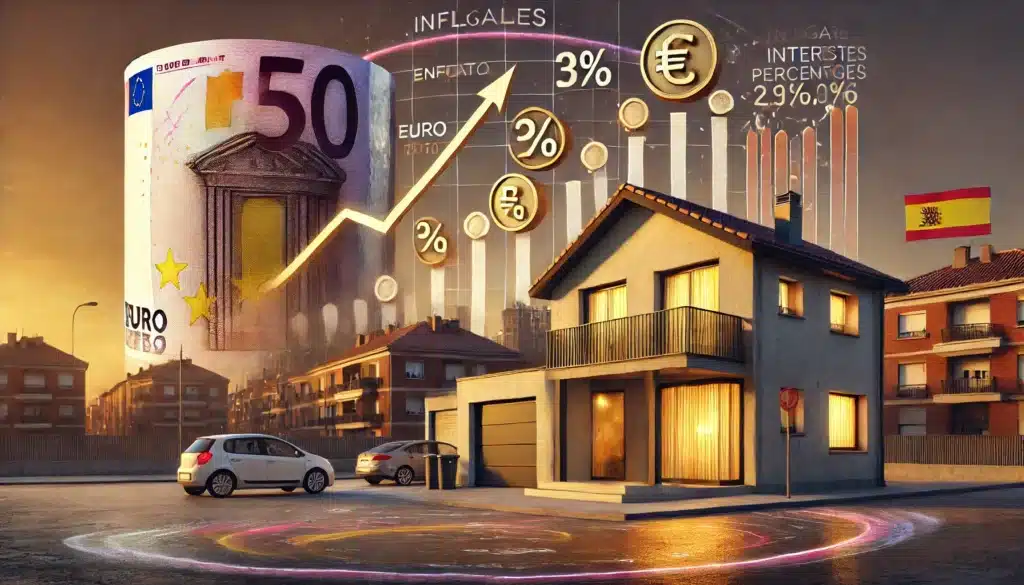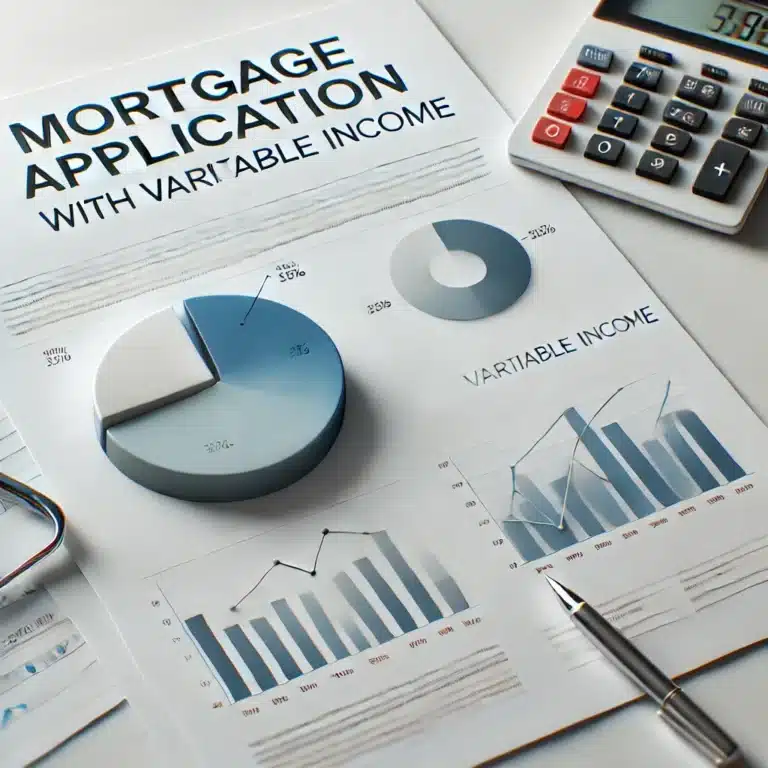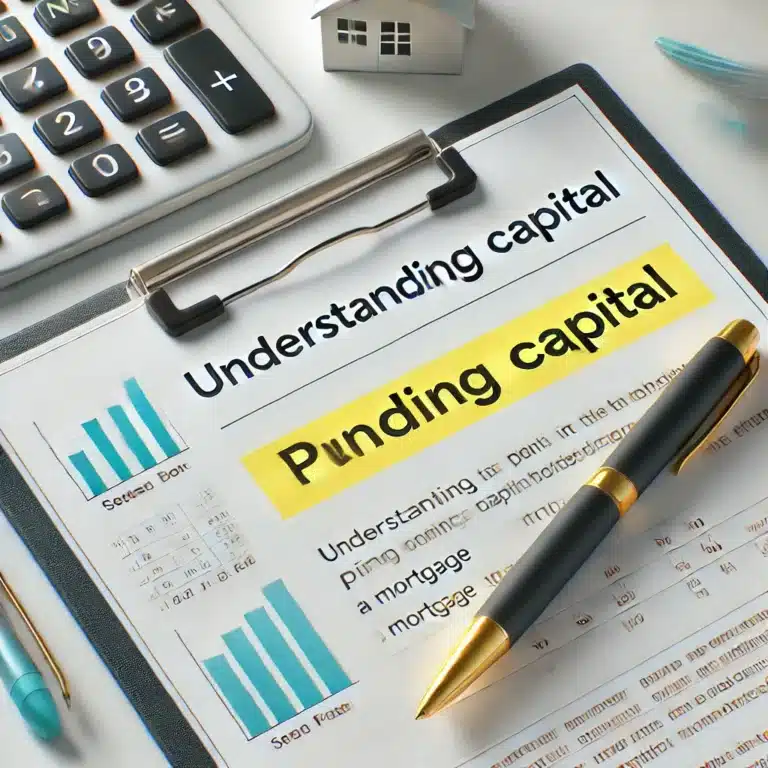
Inflation has a significant impact on mortgages, influencing interest rates, purchasing power and monetary policy decisions. This article explores how these factors interact and how borrowers may be affected by inflation in Spain.
1. What is inflation and how is it measured?
Inflation is the generalized increase in the prices of goods and services in an economy over a period of time. In Spain, it is measured mainly through the Consumer Price Index (CPI), published monthly by the National Statistics Institute (INE).
When inflation is high, money loses purchasing power, which means you can buy less with the same amount of money.
2. Impact of inflation on mortgages
a) Influence on interest rates
Inflation directly affects interest rates due to the monetary policies implemented by the European Central Bank (ECB):
- In high inflation: The ECB tends to raise interest rates to control price increases. This makes variable mortgages more expensive, as they are linked to the Euribor, the most widely used reference index in Spain.
- In low inflation: The ECB can lower interest rates, which makes variable mortgages cheaper.
b) Increase in installments of variable mortgages
When interest rates rise, variable mortgage payments increase. This is because the Euribor, which fluctuates according to inflation expectations and ECB rates, is used to calculate monthly payments.
For example:
- A variable mortgage with a spread of 1% and a Euribor of 2% will have an interest rate of 3%. If the Euribor rises to 4%, the interest rate will be 5%, significantly increasing the monthly payment.
c) Lower purchasing power
Inflation reduces the purchasing power of households, which can make it difficult to meet mortgage payments, especially if installments increase due to rising interest rates.
d) Profit on fixed mortgages
For those with fixed-rate mortgages, inflation can be beneficial in certain cases. By having constant payments, the impact of rising prices is less, as the money is “worth less” over time, but the monthly payment does not change.
3. Relationship between inflation and the real estate market
a) Increase in housing prices
Inflation can also increase real estate prices, making new mortgages more expensive. Construction and material costs often rise with inflation, directly impacting home values.
b) Difficulty in accessing mortgages
With high inflation, banks often tighten the criteria for granting mortgage loans, assessing borrowers’ creditworthiness more strictly.
4. Strategies to mitigate the impact of inflation on your mortgage
a) Opting for a fixed rate mortgage
If high inflation is expected, choosing a fixed mortgage can protect you from future interest rate hikes, as the payments will remain constant.
b) Refinance your mortgage
In high interest rate environments, renegotiating the terms of your mortgage or switching banks can help you get better terms.
c) Reducing indebtedness
Maintain a low level of indebtedness so as not to overburden your payment capacity in times of high inflation.
d) Diversify your income
Increasing or diversifying your sources of income can help you balance the impact of inflation on your personal finances.
5. Prospects for mortgages in high inflation environments.
In Spain, inflation has had a considerable impact in recent years, leading the ECB to take measures such as raising interest rates. These decisions have made variable mortgages more expensive, while fixed mortgages have gained in popularity.
It is expected that, if inflation remains under control, the ECB will gradually reduce interest rates, easing variable mortgage payments. However, households should prepare for possible economic fluctuations.



